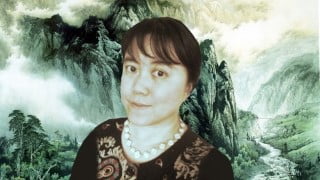Tao Te Ching—the Book of Te
Learn Taoist philosophy, classical and modern Chinese language, and comparative study of Taoism and other religions. Explore the profound wisdom of Tao Te Ching, the second most translated literature in the world. This course provides a comprehensive understanding of the book’s teachings, its influence on various disciplines, and its impact on Western philosophies. Ideal for students interested in Chinese language, culture, and oriental religion. Join now to unravel the cryptic and poetic language of Tao Te Ching and gain valuable insights into the cosmic origin of Tao and its application in all aspects of life.
What you’ll learn
- Learn Taoist philosophy
- Learn about Tao Te Ching—the second most translated literature in the world, only next to Bible
- Learn classical and modern Chinese language
- Learn comparative study of Taoism and other religions
Hello everyone, welcome to Tao Te Ching–the book of Te: learn the wisdom and language of the most translated Taoist philosopher. Tao Te Ching is a fundamental text for both philosophical and religious Taoism, and strongly influenced Legalism, Confucianism and Chan Buddhism, which when first introduced into China was interpreted through the use of Taoist concepts. Many Chinese artists, including poets, painters, calligraphers and gardeners, have been greatly influenced by Tao Te Ching. Its influence spread widely outside East Asia, and is among the most translated works in world literature, only next to Bible.
The passages in Tao Te Ching are ambiguous, with topics ranging from advice for rulers and profound religious experience of cosmic origin of Tao and its application in all realms of life. The book has 81 chapters ,this course teaches the second half of the book: the Book of Te. The central values of Tao Te Ching are: the ineffability of Tao, the privileging of the female attributes, the force of Yin–such as softness, yielding, humility, resilience and non-action effecting all actions. The returning movement as the movement of Tao, the interchangeability of the opposites, political rule with least interference, philosophical and religious experience of vacuity and power of nothingness. It believes that the masters of Tao do nothing, while leave nothing undone. It is only when Tao is lost, that there are the artificial human standards of virtue, benevolence, righteousness and ritual. It believes that the great rulers are like the ocean, residing in a low place, and through its humility all states flow down and gather to it without resorting to military force and coesive measures.
Tao Te Ching has been translated into Western languages over 250 times, its cryptic and poetic language is a famous puzzle which everyone would like to resolve. It exerted a profound influence on western philosophies: its dialects formed Leibniz’ and Hegelian dialectics, and influenced Schopenhauer and Nietzsche’s opposition of the world of ideal and the world of the will. Many western thinkers, upon the disaster of the First World war and the contemplation of the ruins of western civilization, had looked upon Lao Zi’s ideal of rulership in the vein “performing non-action to achieve all action” and freedom from state greed and violence as a welcoming antidote to the ruins of western civilization.
In learning the course, print out the PDF of Tao Te Ching text in the introduction chapter, and with it in hand, study the selected chapters in the following lectures (because there is no subtitle of the text in the video). For each lecture, I will explain word by word the meaning of the classical Chinese text, and then I will explain to you the philosophical implication of these texts, often comparing it with other schools of Chinese philosophies. Finally I will lead you to read the text twice so that you can recite and memorize them.
Who this course is for:
- Students interested in Chinese language and culture
- students interested in oriental religion
User Reviews
Be the first to review “Tao Te Ching—the Book of Te”
You must be logged in to post a review.







There are no reviews yet.